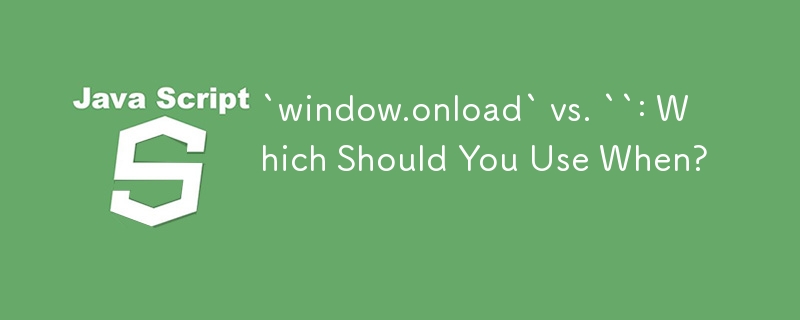

window.onload vs. : When to Use Which
In JavaScript, there are two primary ways to handle window load events:
Difference between the two:
The primary difference between these two methods lies in their behavior regarding HTML DOM loading.
Best practices:
The choice between using window.onload and
Additional considerations:
The above is the detailed content of `window.onload` vs. ``: Which Should You Use When?. For more information, please follow other related articles on the PHP Chinese website!
 Compare the similarities and differences between two columns of data in excel
Compare the similarities and differences between two columns of data in excel
 Win10 My Computer Icon Retrieval Tutorial
Win10 My Computer Icon Retrieval Tutorial
 sort sorting function usage
sort sorting function usage
 How to install printer driver in linux
How to install printer driver in linux
 How to unlock android permission restrictions
How to unlock android permission restrictions
 excel duplicate item filter color
excel duplicate item filter color
 what is optimization
what is optimization
 How to repair sql database
How to repair sql database
 How to use append in python
How to use append in python




